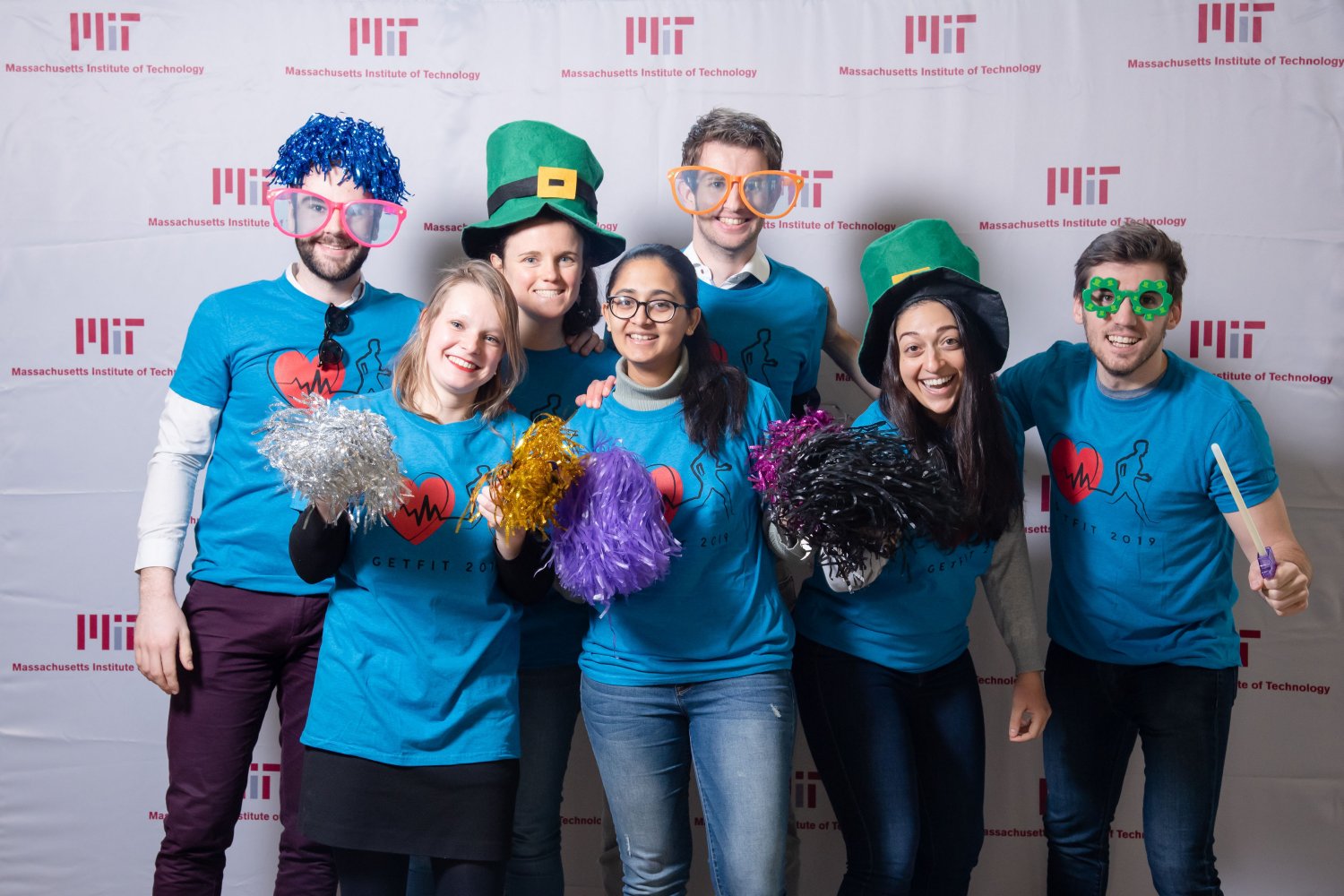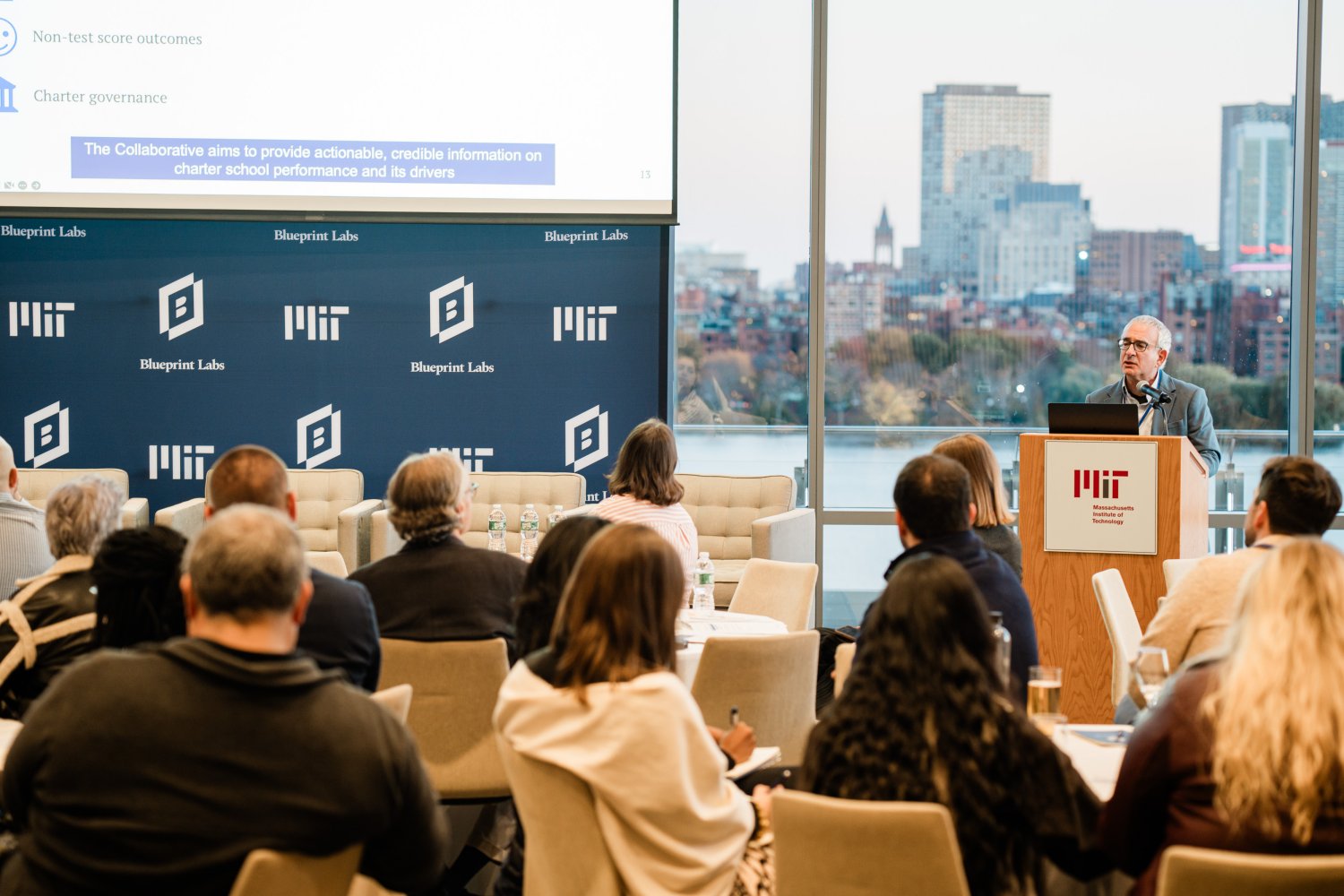
“Getfit” isn’t a command, but rather a friendly challenge from MIT Health (formerly MIT Medical) to spend the cold months exercising with a group of people you choose in any way you choose. This year, the popular winter fitness program is celebrating its 20th year. What began as a goal-oriented exercise incentive for MIT Health staff in its pilot year, and expanded in 2005 to the entire MIT community, has now become a cherished tradition for many.
Tom Goodwin, a staff member in MIT Health who has participated every year, states the program’s value succinctly. “Getfit starts when it is cold and dark and ends when it is warm and bright. Forming a team and logging minutes motivates us to get off the couch and move!”
Andrea Porras, a Media Lab affiliate and four-time participant, says, “I look forward to getfit every year because it’s the only thing motivating me to make an extra step in the winter. It’s a fun way to learn more about your co-worker and the sporty activities they participate in. You’d never know who’s into boxing or hockey!”
The getfit challenge continued even during the Covid-19 pandemic, providing an important means of connecting with others during a time of social distancing. It has grown steadily from 1,277 participants in 2005 to 3,385 participants on 501 teams in 2023, logging a total of 12,890,676 exercise minutes. That’s 214,845 hours — or an average of 63.5 hours for each participant — over the three-month period.
Almost any kind of exercise can be counted — walking across campus, climbing stairs, running or swimming, skiing, stretching, even time spent lifting heavy items. Any exercise that gets your heart beating faster than usual, uses your muscles, or increases your flexibility can help to fulfill your weekly exercise-minutes goal and add to your team’s combined minutes, which need to be entered into the getfit website by the following Monday.
Teams of five to eight people can include staff, students, faculty, affiliates, and family members with two co-captains. Each team strives to meet the weekly exercise goals for individuals and teams, starting with 150 minutes in the first week and building up to 300 minutes in week 12. Some team members may complete more minutes than others, at varying degrees of exercise intensity. But as long as each individual meets getfit’s minimum weekly goal, they qualify for that week’s prize drawing for individuals, and teams whose per-member average meets or exceeds the goal are entered in the drawing for weekly team prizes.
“We have been doing the getfit challenge for 17 years and loving it,” says a spokesperson for the MIT Sloan EverReadys, a seven-member team with five faculty members, one affiliate, and one family member. “It gets us going in the middle of winter and continues to motivate us for the whole 12 weeks. Some of us can get over 300 minutes each of the weeks; others barely make the required amount. Nonetheless, there have been a number of times when we had a perfect season, each person making the required amount in each of the 12 weeks. We also think we are probably the oldest gang in town. Our ages range from the 50s to the 90s. ‘Not bad,’ we like to think.”
A grand prize for one randomly drawn team is awarded at the end of the three months. At the end of the challenge, “Onward and Upward” prizes are awarded by random drawing to two individuals who recorded exercise minutes for every week of the challenge and demonstrated a steady and consistent increase in exercise minutes from week to week, even if those minutes didn’t meet each weekly goal set by getfit. This year there will be even more prizes, in celebration of the program’s 20th anniversary.
In addition to the chance to win prizes, all participants on an active team can receive a free getfit T-shirt — a special 20th anniversary version this year — and can take advantage of other free or discounted services, such as a special four-month access pass to MIT Recreation and a free 30-day membership on the exercise app CardioCast.
But for many people, bonding with teammates is a more powerful incentive than winning prizes.
“For me, the social aspect was most useful,” says Josh Bradshaw, the family member of a graduate student. “Seeing my friends getting out there and pushing up their scores was a helpful nudge to do a little bit more myself … After taking up running during getfit, I ramped up my weekly volume and eventually ran the Philadelphia Marathon in the fall.”
The program often helps create new exercise momentum for people, such as Shellyann Isaac, from the Undergraduate Advising Center, who will be a 20-year participant this year. She began the program trying not to disappoint her teammates, but over the years, she says, “I worked out to not disappoint myself.”
“Getfit is my annual reminder to check in on my health, both mental and physical,” says Brian Bryson of MIT Technology Review. “It’s a great reflection point that sets the tone for the rest of the year.”
Registration for getfit 2024 runs through Jan. 23. The challenge begins Monday, Jan. 29 and ends Sunday, April 21. More information can be found at getfit.mit.edu.

